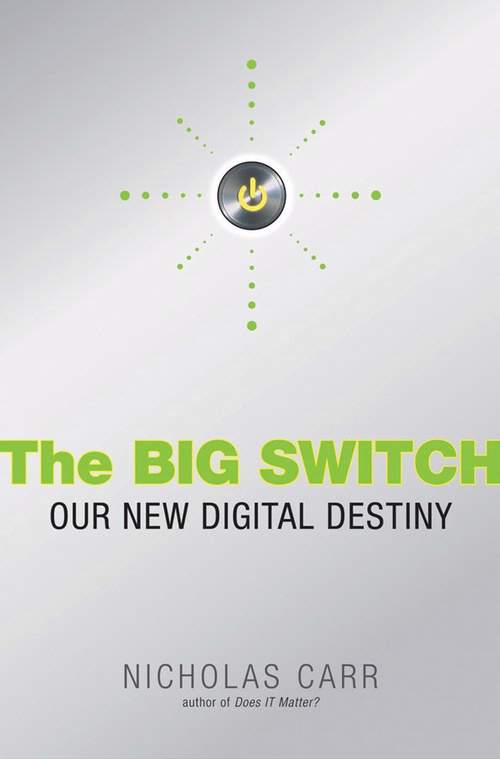Nicholas Carr leapt to public prominence back in 2003 when IT Doesn’t Matter, his attack on the view that new technology would improve business effectiveness, appeared in the Harvard Business Review and prompted every high-spending IT director of a US company to denounce him for daring to challenge their right to ever greater budgets.
Time has transformed his argument that once everyone is using IT effectively it brings no competitive advantage into accepted wisdom, and he has moved on to new targets, most recently the hubris that surrounds supposedly “breakthrough” products like Amazon’s overpriced and underspecified e-book reader, the Kindle.
 Always entertaining and never boring on his blog, Rough Type, he has for some time been exploring the idea that the way we use computers is changing radically beneath our feet and that the age of the personal computer is now being superseded by that of the “cloud”, computing services that are accessed over the internet rather than locally hosted.
Always entertaining and never boring on his blog, Rough Type, he has for some time been exploring the idea that the way we use computers is changing radically beneath our feet and that the age of the personal computer is now being superseded by that of the “cloud”, computing services that are accessed over the internet rather than locally hosted.
In The Big Switch he goes back to the early days of electrical power to find an analogy for the way IT is evolving, drawing out parallels between Edison’s provision of electrical power to the offices of New York in the nineteenth century and the shared storage offered by services like Amazon’s S3.
It is a compelling tale, and the early chapters of the book show him to be a sympathetic and well-read historian as he deals with the people and the technologies which gave electric power to North America. He offers a fascinating portrait of George Insull, Edison’s protégé and the man who saw how alternating current would permit factories to replace local generators with access to a long-distance grid. The parallels between Insull’s work and pioneers of web-based services like Google, Sun and Amazon are well drawn.
This is also a book about technological determinism, or rather about the reality of our relationship with technology. In an early chapter he points out that “the technological imperative that has shaped the Western world is not arbitrary, nor is our surrender to it discretionary”, and the idea that the interaction between a society and the available technologies is a discourse and not a done deal permeates the book. Carr wants his readers to be aware of what is now on offer so that we can make better decisions about the choices we face.
There are occasionsional moments which grate. Towards the end of the book Carr laments the passing of those who “remember life before the arrival of Edison’s bulb”, apparently unconcerned with those outside the US for whom electricity is still a luxury, but these slips are few and do not affect the main thrust of the argument.
Carr may take a somewhat apocalyptic view of the vast technological and social issues which a move to utility computing will raise, not least those of privacy, ownership and access, but he makes a compelling case for its desirability in a world where the network is pervasive. Whether we go gently into this world is, of course, up to us, but with the insight offered here we will at least be prepared to understand the consequences of our choices earlier in the process rather than later.

